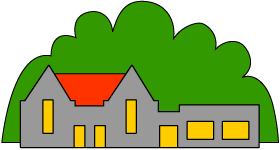What knowledge and skills do we want our children to have?
“Music gives a soul to the universe, wings to the mind, flight to the imagination and life to everything.”
Plato
Music also reduces stress, improves mood, and promotes teamwork, exercises your heart and lungs releasing endorphins making you feel good. It builds resilience and confidence, it is creative and fun. Music is a universal language which not only creates oneness in our school but prepares children for the wider community and prepares them for the real world. Although these statements are not in the National Curriculum, at Aldborough we see them as of equal importance and that when our children are happy, relaxed they not only and want to learn but feel a strong sense of belonging. Through our teaching we want to make music: inspiring, growing a love which builds creativity and a sense of achievement through having high aspirations. We teach technical vocabulary (Model Music Curriculum 2021) developing and building a sound understanding of the musical elements for example: structure, pitch, dynamics, texture and timbre in music.
The National Curriculum States:
Key Stage 1
Pupils should be taught to:
- use their voices expressively and creatively by singing songs and speaking chants and rhymes
- play tuned and untuned instruments musically
- listen with concentration and understanding to a range of high-quality live and recorded music
- experiment with, create, select and combine sounds using the interrelated dimensions of music
Key Stage 2
Pupils should be taught to sing and play musically with increasing confidence and control. They should develop an understanding of musical composition, organising and manipulating ideas within musical structures and reproducing sounds from aural memory.
Pupils should be taught to:
- play and perform in solo and ensemble contexts, using their voices and playing musical instruments with increasing accuracy, fluency, control and expression
- improvise and compose music for a range of purposes using the interrelated dimensions of music
- listen with attention to detail and recall sounds with increasing aural memory
- use and understand staff and other musical notations
- appreciate and understand a wide range of high-quality live and recorded music drawn from different traditions and from great composers and musicians
develop an understanding of the history of music
How will we teach the children?
The Music Curriculum ensures students sing, listen, play, perform and evaluate. This is embedded in classroom activities and performances. Practical music lessons where children have the opportunity to make noise and mistakes is fundamental in how we teach music. Children perform and are encouraged to seek ways on how they can make improvements. We follow the music scheme by Kapow which sets out key objectives, assessment and progression from lesson to lesson. We also subscribe to Charanga which we also use for whole class instrumental lessons.
Children sing in class and have weekly whole school singing assembly where we sing a variety of songs from different genres. We embrace these assemblies where a sense of wellbeing and positivity is not only nurtured but shared among the staff and the children. The Norfolk Music Hub has enabled our children to participate in events at venues such as the Royal Albert Hall and the Norwich Cathedral. They have offered us opportunities to apply for bursaries which has enabled children to participate Djembi drumming, Samba and singing workshops from specialised teachers. All these opportunities have developed ‘Cultural capital’ in our children and CPD among the staff.
Children will demonstrate:
- Confidence in discussing music, their own work and identifying their own strengths and areas for development.
Evidence will show:
- Pupils have had opportunities for practise and refinement of skills.
- A varied and engaging curriculum which develop a range of musical skills and performances.
- Developed and final pieces of work which showcase the skills learned
That pupils, over time develop a range of skills and techniques across all of the areas of the music curriculum.
